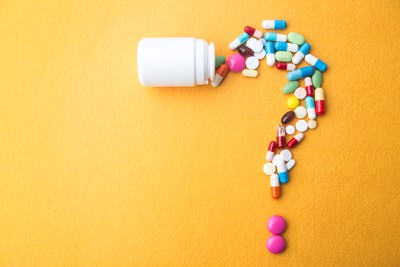Over time, your medicine cabinet can collect older medications and supplies that may be expired and are not recommended for use anymore. Emergency physicians recommend you clean out your medicine cabinet at least once a year.
A year’s worth of showers and baths create heat and humidity that can cause some drugs to lose potency. It’s good to get rid of them and replace them if necessary. If a medication loses potency, you may not be getting the necessary dosage. Holding on to old prescriptions can also increase the risk of taking the wrong pill.
Unused or expired prescription medications can also pose a safety risk, since they may be misused. Each year, the Drug Enforcement Administration holds a National Prescription Drug Take Back Day to encourage households to rid their medicine cabinets of potentially-dangerous medications. This can be a good reminder, but there also year-round drug disposal sites.
A bathroom medicine cabinet is not always the best place to store over-the-counter or prescription medications. Instead, you may benefit from keeping them in a linen closet or a dark area, especially away from children. According to study published in the Annals of Emergency Medicine, poison centers reported thousands of very young children accidentally ingesting medications prescribed to adults in their households.
While you're cleaning out your medicine cabinet, here are some essential items to consider replacing or keeping on hand:
- Adhesive bandages of assorted sizes (to cover minor cuts and scrapes)
- Gauze pads (to dress larger cuts and scrapes)
- Adhesive tape (to keep gauze in place)
- Thermometer (do not use mercury-based thermometers)
- Alcohol wipes and hydrogen peroxide (to disinfect wounds)
- Up-to-date prescription and over-the-counter drugs
- Antibiotic ointment (to disinfect and protect wounds from infection)
- Antacid
- Antihistamine (for allergic reactions)
- Hydrocortisone cream (to relieve irritation from rashes)
- Decongestant (be mindful of dosages for appropriate ages)
- Acetaminophen, ibuprofen and aspirin (note: aspirin should not be taken by children or teens under age 19)
- Antiseptic wipes (to disinfect wounds or clean hands)
 American College of Emergency Physicians
American College of Emergency Physicians







